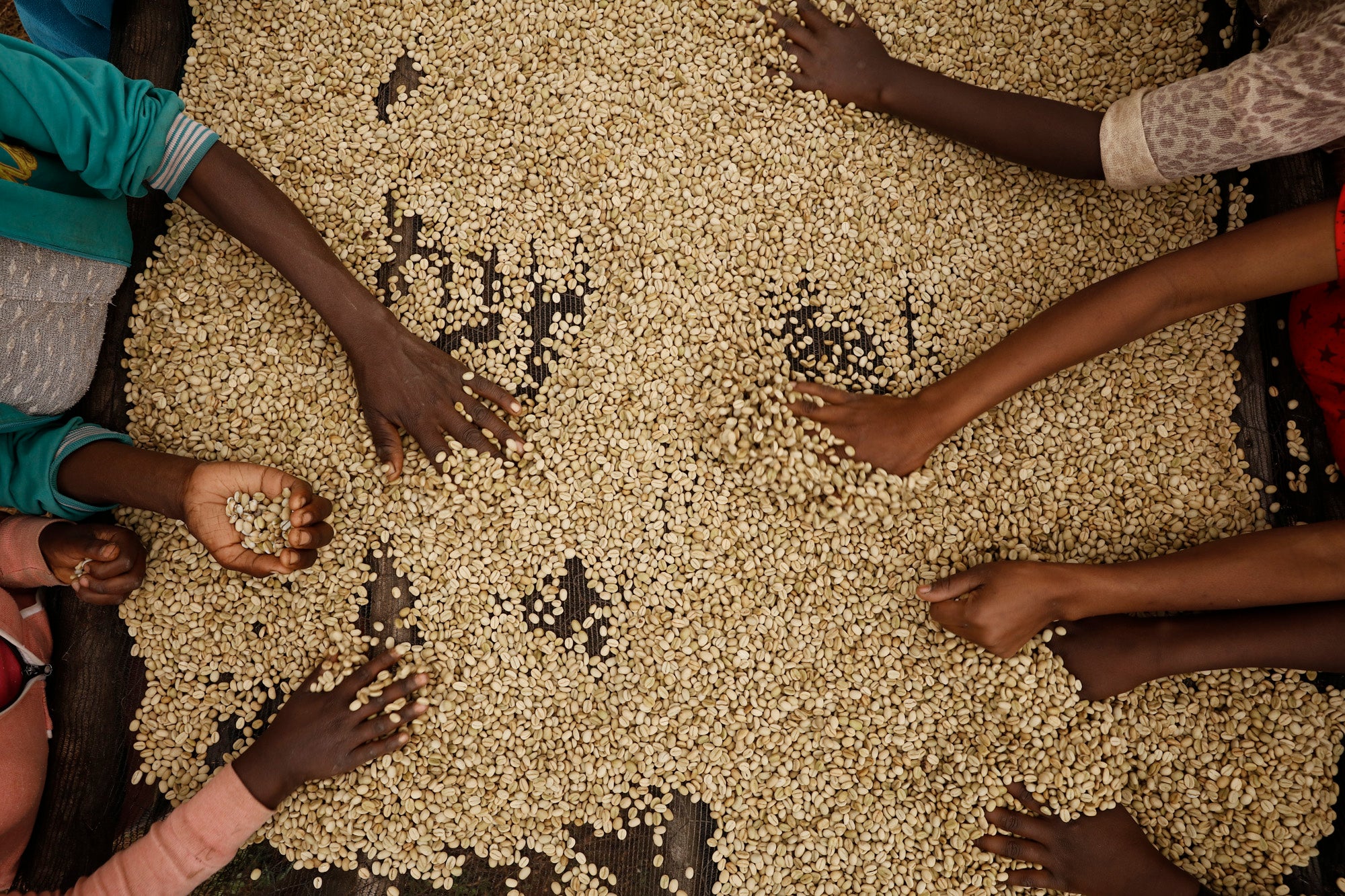Karagoto, Kenya 2018
Here is the last Kenyan being released from the last harvest, from Karagoto. As you know we love the vibrant taste profile from Kenya. But what also makes this coffee so unique is the accuracy in processing, that truly brings out the character of the coffee and is very consistent to work with as a coffee for both roasters and baristas. The small holding farmers around Karagoto are growing mainly the SL28 and SL34 varietal, from here you can expect a warm cup with high acidity with notes of lime, hibiscus, yellow grapefruit and the black currant note typical for coffee from Kenya.
About coffee production at Karagoto
In Kenya a mill/washingstation/process station is called a "factory". This is just a different culture and wording, but just to clarify that Karagoto is the place where the coffee is being processed.
During the months of harvest, November to January, the farmers are delivering the coffee to Karagoto factory on the same day as they have done the picking, either by foot or bike. Arriving to Karagoto they are sorting the cherries by hand, separating mature beans from immature beans, this is the first sorting of the beans. All the coffee will be used, but just for different quality. After this the coffee starts to get processed, first being depulped where the outer skin of the cherry and most of the mucilage is removed. The coffee is then fermented, washed and dried on raised beds. What makes coffee in Kenya even more consistent to work with is that the coffee is separated by size, where AA is the biggest and PB the smallest. This doesn't say anything about quality per say, but the different sizes will of course taste different from each other. This is the AB, meaning the second biggest size beans from Karagoto.
About Karagoto
The Karogoto factory is located quite close to Kieni near the town of Karatina, Nyeri. It's owned by the Tekangu Coffee Farmers’ Cooperative Society, which got its name from combining the names of their three mills: Tegu, Karogoto and Ngunguru. It has seen success in recent years to secured some really great prices for the farmers that deliver their coffee cherries there. Karagoto is managed by Ephraim Maina Muthee, who showed us around when we visited in 2016.
The mill is split in half by a road, with the sorting shed and fermentation tanks on the lower side and the drying beds on the upper slope of the hill. Both sides are pretty steep, with a great view of the valley and weaver birds making their homes in the trees around the mill.
SHORT FACTS ON KARAGOTO
Mill: Karagoto
Owners: Tekangu Coffee Farmers’ Cooperative Society
Contributing farmers: 1700+
Altitude: 1700 m.a.s.l.
Nearest town: Karatina
Varietal: Mainly SL28 & SL34
Size of beans: AB, the second biggest selection of beans
Processing method: Washed
Average rainfall: 1500 mm
Temperature range: 12–27°C
Soil type: Well-drained red volcanic soil rich in phosphorus
Flavour colour: Pink
Flavour profile: Karagoto is a floral and vibrant cup, with a lot of citric acidity. Flavours of yellow grapefruit, black currant and hibiscus. Despite the high acitidy, Karagoto also has a warm character and roundness reminding of good Merlot wine.
Learn More
- Choosing a selection results in a full page refresh.
- Press the space key then arrow keys to make a selection.
